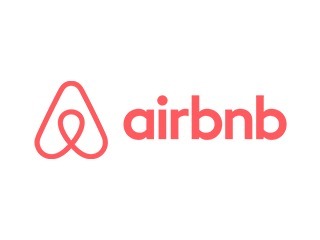
Most Airbnb hosts not in compliance with SF law
New report from the Board of Supervisors finds that 80 percent of hosts have failed to register
Editor's Note: Our annual Vator Splash Spring 2016 conference is around the corner on May 12, 2016 at the historic Scottish Rite Center in Oakland. Speakers include Nigel Eccles (CEO & Co-founder, FanDuel), Andy Dunn (Founder & CEO, Bonobos), Mitch Kapor (Founder, Kapor Center for Social Impact); Founders of NextDoor, Handy, TubeMogul; Investors from Khosla Ventures, Javelin Venture Partners, Kapor Capital, Greylock, DFJ, IDG, IVP and more. Join us! REGISTER HERE.
 Despite Airbnb’s big talk for wanting to be an active, positive part of the communities where it does business, hosts in San Francisco don’t seem particularly interested in following laws enacted by their own communities.
Despite Airbnb’s big talk for wanting to be an active, positive part of the communities where it does business, hosts in San Francisco don’t seem particularly interested in following laws enacted by their own communities.
As many as 79.9 percent, or over 4,000 hosts with Airbnb listings in San Francisco, have failed to follow the city's law requiring short-term rental hosts to register those listings, according to a new analysis from the Board of Supervisors.
The report found that Airbnb activity in the city increased by about 15 percent from 6,113 listings in December 2014 to 7,029 listings in November 2015, with 5,378 unique hosts providing those listings. And yet, the city had only received 1,082 short-term rental registrations as of November 2015. As of last month, the city has received 1,647 applications.
Additionally, users are ignoring a law that limits the renting of entire homes (when the host is not present) to just 90 days per year. The same report estimates that 26.1 percent of these “unhosted entire home listings” have been rented for more than 90 nights. That’s about 285 homes.
We reached out to Airbnb to see their statement on these new findings:
“Airbnb is already working to help meet the City's goal of fighting illegal hotels and we are taking action by removing unwelcome listings from our platform, releasing data and cracking down on commercial operators,” wrote Airbnb spokesperson Nick Papas to me in an email. “Unfortunately, the registration process remains a challenge -- San Francisco is asking hosts to apply for multiple permits, fill out dozens of pages of paperwork and tell the City how many spoons they have in their home.”
The comments about a challenging registration process are not baseless, as the supervisors’ report actually suggests simplifying registration to make it easier for hosts to be in compliance. The current system requires hosts to register their short-term rental while also registering for a business tax, and neither can be done online.
While the city is able to recognize its shortcomings, however, it’s revealing to see Airbnb bristling with a dismissive and cynical comment about how the city wants to know about hosts’ cutlery. The reason the city requests an itemized list of “furniture, appliances, supplies, equipment and fixtures” is that hosts are running their spaces like businesses.
“We have heard loud and clear from (hosts) that they want to be treated like everybody else and are willing to pay taxes like everybody else,” said Assessor-Recorder Carmen Chu in the San Francisco Chronicle last month. “They are operating their homes as a business and so we are treating them as we would any other business.”
Despite the new report finding nearly 300 “entire homes” being rented for more than 90 days per year, in violation of the law, Airbnb insists that the typical host shares their space 48 nights per year.
Related Companies, Investors, and Entrepreneurs
Airbnb
Startup/Business
Joined Vator on
Airbnb.com is the “Ebay of space.” The online marketplace allows anyone from private residents to commercial properties to rent out their extra space. The reputation-based site allows for user reviews, verification, and online transactions, for which Airbnb takes a commission. As of June, 2009, the San Francisco-based company has listings in over 1062 cities in 76 countries.
Related News


SEC filing confirms Airbnb’s monster $1.5B round

